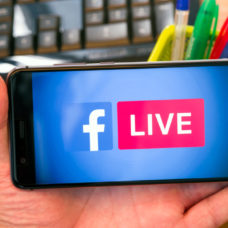Face masks have become a part of our everyday lives. To curb the spread of COVID-19, governments across the U.S. now require that people wear coverings.
Expectedly, these masks have made facial recognition software less effective. For example, Apple had to release a software update to ensure that Face ID works properly when users are wearing masks.
But how well do face recognition algorithms recognize people that wear masks?
That’s what the researchers at the U.S. National Institute of Standards and Technology sought to answer. So, they conducted a study to test the algorithms developed before the pandemic.
In a statement, NIST computer scientist and author of the report, Mei Ngan, said:
“With the arrival of the pandemic, we need to understand how face recognition technology deals with masked faces.”
Here’s what they did.
Using Digital Facial Masks to Test Facial Recognition Algorithms
For the study, the researchers digitally applied mask shapes to 6 million original photos to test 89 facial recognition algorithms’ effectiveness.
Since real-world face masks differ, the team had to create nine mask variants based on the shapes, color, and nose coverage. The colors are black and light blue — similar to that of surgical masks. Meanwhile, the shapes of the masks varied based on the degree at which they cover the nose.
The test considered the algorithms’ one-to-one matching capabilities. That means it essentially compares one photo of a person to another, but with a mask.
“We can draw a few broad conclusions from the results, but there are caveats,” Ngan said. “None of these algorithms were designed to handle face masks, and the masks we used are digital creations, not the real thing.”
Here’s what the researchers discovered.
Face Masks Are Thwarting Facial Recognition Algorithms
The researchers found that face masks are successful at blocking even the best facial recognition technology. Depending on the algorithms’ capabilities, the error rate varied from 5 percent to 50 percent.
According to the study, masks that cover the nose more have higher chances of fooling the algorithm. Also, black masks were more likely to thwart facial recognition software than blue ones.
Facial recognition algorithms work by getting as many data points on a person’s image as possible. Since facial masks cover a large part of the face, it reduces access to a lot of valuable identifying information.
Current facial recognition algorithms are not as reliable as you would imagine. Using the software can be challenging under poor lighting or at bad angles.
The face masks have only made matters worse, says the study.



















Comments (0)
Most Recent